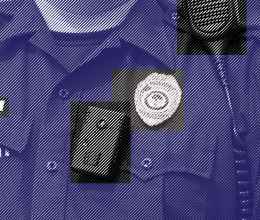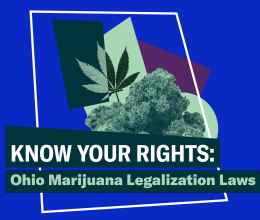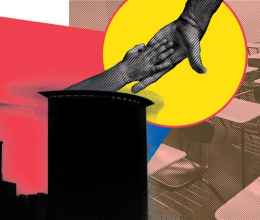Below is the official testimony originally submitted to the House Homeland Security Committee on December 4, 2024.
Chairman Ghanbari, Vice Chair Plummer, Ranking Member Thomas, and members of the House Homeland Security Committee:
My name is Patrick Higgins, and I serve as Policy Counsel at the ACLU of Ohio. Thank you for the opportunity to present testimony in support of Senate Bill 37. It is a pleasure to be back in this Committee to discuss the imperative of untangling Ohio’s mess of counterintuitive driver’s license suspension and reinstatement policies.
The ACLU of Ohio supports Senate Bill 37 because it is a stride in addressing flaws in existing law regarding how our state addresses offenses unrelated to driving that are currently standing between Ohioans and their ability to get to places like work and school. Simply put, this is smart policy in that it ends driver’s license suspensions for offenses that have nothing to do with driving. Restricting a person’s mobility for wholly unrelated offenses is antithetical to what I believe is a goal shared between supporters of Senate Bill 37 and this Committee: a legal system that allows all Ohioans to prosper.
As Senate Bill 37’s sponsors pointed out last week, Ohio’s current driver’s license suspension penalties set many of our neighbors up to fail because such penalties quickly become insurmountable to people who need to get to work, to their doctor, or to pick their children up from school. We live in an Ohio where 82% of us drive to work and only 1.4% rely on public transit.1 For far too long, Ohioans have found themselves ensnared in counterintuitive and burdensome policies along with their snowballing reinstatement fees. Senate Bill 37 addresses a number of these policies by making the following changes, among others:
- Current law carries possible driver’s license suspensions for many drug offenses that have nothing to do with driving.2
- Senate Bill 37 limits drug offense-related suspensions to those where a vehicle is used in furtherance of the offense.
- Current fine and fee practices can easily snowball into insurmountable piles of court debt, regardless of whether a person wants to get right with the law, leaving Ohio drivers to face over 3 million debt-related suspensions annually.3 This is especially burdensome for our lower income neighbors and those without access to public transportation.
- Senate Bill 37 eliminates driver’s license suspensions for failure to pay court fines or fees and creates a supplemental notice procedure for individuals who fail to appear at court.
- Under current law, a court may grant limited driving privileges for a child support obligor during an action for contempt.
- Senate Bill 37 authorizes a person whose license is suspended for failure to pay child support to file a motion with the court for limited driving privileges in all circumstances, not just during contempt proceedings.
You have a unique opportunity in this moment of time, General Assembly, and Committee. Over the course of years, Ohio has been slowly untangling the quagmire of driver’s licenses suspensions in a way that gets more of us right with the law and on the road to health, education, family, and work. Senate Bill 37 is the right vehicle for these important changes, and I encourage you to keep driving. The ACLU of Ohio stands ready to be of assistance in making sure this important piece of legislation gets to its final destination.
1 ROAD TO NOWHERE: DEBT-RELATED DRIVER’S LICENSE SUSPENSIONS IN OHIO. The Legal Aid Society of Cleveland 2022. Available at https://lasclev.org/wp-content/uploads/Road-to-Nowhere_hirez.pdf.
2 For example, the following crimes carry possible driver’s license suspensions:
3 ROAD TO NOWHERE, supra note 1.








